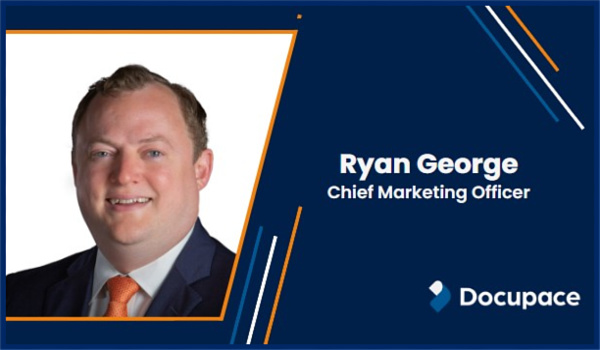Want to grow a successful advisory practice in the 21st century? You’d better have a niche!
While major financial brands like wirehouse brokerages and other well-known banks have the scale and clout to try to serve a broad, diverse population on a regional, national or global basis, most wealth management firms have to be more focused, said Ryan George, chief marketing officer for Docupace, an enterprise financial services back-office automation platform.
“The reason a niche is important is that this industry has a real problem with standing out from the crowd,” said George. “There are thousands and thousands of financial advisors that look and sound the same and present themselves in the same way, so the only thing that really sets them apart is their proximity to where their client, or the prospective client, may live.”
Geography is less impactful today, said George, because more people are open to working with professionals who do not live in their neighborhood or city—after the Covid-19 pandemic, even wealthy and affluent households have become comfortable working remotely. Advisors need to find something else to differentiate themselves.
Some advisors still try to stand out by touting all of the different types of products and services they can provide to clients, said George, but this is a mistake.
“There’s the movie ‘Hurt Locker’ where Jeremy Renner’s character comes home and his wife asked him to get some cereal from the store,” said George. “He gets to the store and just goes to zero—he stares, because it’s like there are thousands of different boxes of cereal and he doesn’t know how to make the choice—and I think that’s like a common mistake I see financial advisors make in their marketing. They talk about all the services they offer and try to speak to all the possible clients they could work with, and I think that creates a lack of connection with people. People are usually looking for a specific thing, whether they know it or not.”
Over the years, as the industry has become less product-oriented, other advisors have focused on their ability to develop a plan, or their identities as fiduciaries, or concierge services—but George said that all of these strategies also fail to effectively differentiate one wealth manager from another.
“I don’t think people come to a financial advisor based on the advice, they come based on the human connections that they have created with them to the point where they want to make a long-term commitment to it,” said George. “It’s not access to products—all major firms have access to the same or similar products. It’s not performance, because you can’t really sell yourself on performance. So it all comes down to convincing someone that ‘this person understands someone like me.’ That’s where the niche comes in.”
Hence the niche.
What is a Niche
A niche is not so overly broad that an advisor cannot specialize in it—it doesn’t make sense to call women, who are over 50% of the population, or men, who are nearly 50% of the population, a niche.
Such broad classifications are better deemed targets, said George—an advisor may want to work with men or women, but they’ll need to hone their reach to a smaller subset of people, like women who work for startups, or men who play softball. A very specific niche, like left-handed men who live on the west coast and drive Dodge trucks, is probably too narrow.
“A good niche really needs to have specific attributes,” said George. “One advisor that I know specializes in serving fighter pilots—he also happens to be a former fighter pilot. He has a connection to that group, he has immediate trust and credibility within that group, but the group is also large enough that he can build a practice catering to them. It’s enough to build a business on.”
The worst possible niche choice, according to George, is one that an advisor or firm has no connection to. If the niche isn’t something the advisor can feel passionate about or has experience with, then it isn’t a good choice because the advisor and firm won’t come off as genuine to their target audience.
Why A Niche
Not only does a niche help an advisor differentiate themselves from their peers, it also hones their practice building efforts, said George, starting with marketing. While most independent advisors don’t have major financial brands’ ability to buy advertising time during national sporting events, they can appeal to people within a narrowly defined niche.
“Operating within a niche also makes the referral business stronger,” said George. “You can become part of a community and grow with the community—you become embedded. These don’t have to be professional communities. Think about frisbee golf enthusiasts—there is a subset of people in this country who are passionate about frisbee golf” and whose enthusiasm has become part of their identities, creating a cohesive group.
In the case of one example, an advisor serving fighter pilots, the advisor would have special knowledge to help serve pilots throughout the arc of their careers. After serving in the military, many fighter pilots go on to civilian careers as commercial pilots.
Fighter pilots would also have some sort of military retirement, potentially a pension, and would need an advisor to help manage these accounts.
“Military careers usually lead to a civilian career that may start at age 40,” said George. “That’s a very different trajectory from a client that did not serve in the military.”
Other Potential Niches
“Another niche I’ve heard of are car afficionados,” said George. “People who like to play with classic cars are a good niche because people who have a passion for cars usually have disposable income to play with, because that’s how they buy classic cars. They’re also groups who routinely get together, and they’re a community that’s big enough to build a business within—so if you like cars, maybe you can put yourself in that community. Of course, there are a lot of advisors out there dedicated to serving dentists, doctors, those are perfectly valid, but not as specific as they could be.”
Many advisors on the west coast choose to target young, high-earning professionals by working with people in startups, especially in the technology industry. These clients may be mass-affluent or upper-middle class households with a lot of uncashed equity. At some point they’re likely to experience a windfall of money and tax burdens that will need to be managed as their company is sold off or taken public.
What Now?
After choosing a niche, a firm’s future decision-making can be guided by that initial choice. So in the example of technology startup workers, a firm could start at the beginning of the client lifecycle and design a marketing program, starting with search-engine optimization, that ties into that niche.
“In marketing and brand awareness, I think you also buy the imagery and use language on your website that specifically ties you to your niche group,” said George. “So for startups, you would want something that looks very modern, tech-friendly and tech-savvy. I think we all know that technology professionals often adopt a specific culture or specific language that they use—using that stuff in your materials could be a part of how you present yourself, because it aligns with what those kinds of people are looking for.”
Advisors also need to be where people in their niche will be and offer connection points that people from that niche will want to use. So while groups like technology workers or oil engineers may want a robust client portal with a lot of hands-on tools, other niches that may encompass older, wealthier and more technology-adverse clientele would want more white-glove approaches.
“The niche can then show up in your operational processes, which you tailor to serving a specific type of client, and it spills over into how you show up for your clients,” said George. “So think of the startup employees—you can show them a path of this is the stage of your business today, and if and when your business reaches this stage further down the line, then here are some of the choices we might have to make. It can help definite the cadence of how often you meet with a client, too, and in what manner you meet them.”
Where Tech Comes In
Aside from the client portal, an advisor’s niche can also help determine what sort of technologies they implement within their technology stack. Certain specialized niches may need point-solution technology to handle particular income, investment, estate- or tax-planning needs.
“I also think that it impacts your decision to work with a custodian, or multiple custodians, because that affects the type of investments you can offer–like what alternatives can be held,” said Goerge. “The fees associated with alternatives are tied to the custodian, so that should be part of the calculus when designing your technology setup.”
To learn more about how Docupace can help your firm reach operational excellence, click here for a free demo.







